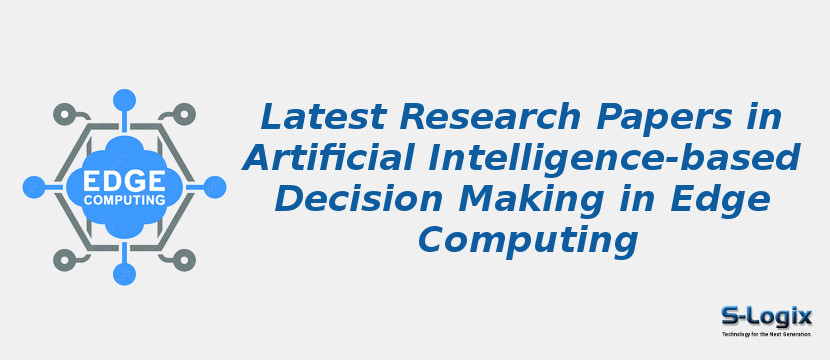Artificial intelligence (AI)-based decision making in edge computing has emerged as a critical research area, focusing on leveraging AI techniques to enable intelligent, autonomous, and real-time decisions at the network edge. Research papers in this domain explore how AI models—including machine learning, deep learning, reinforcement learning, and hybrid intelligence approaches—can optimize task scheduling, resource allocation, workload offloading, service orchestration, and mobility management in edge–fog–cloud environments. Studies highlight AI-driven frameworks that consider dynamic network conditions, heterogeneous device capabilities, user requirements, and application-specific constraints to improve Quality of Service (QoS), Quality of Experience (QoE), energy efficiency, and latency. Recent works also focus on security- and privacy-aware AI-based decision making, incorporating federated learning, blockchain, and trust management to ensure reliable and secure operations. Applications span smart healthcare, autonomous vehicles, industrial IoT, smart cities, and immersive media, where rapid and accurate decisions at the edge are essential. Overall, AI-based decision making in edge computing enables adaptive, context-aware, and intelligent management of distributed resources, paving the way for scalable, resilient, and high-performance edge ecosystems.
